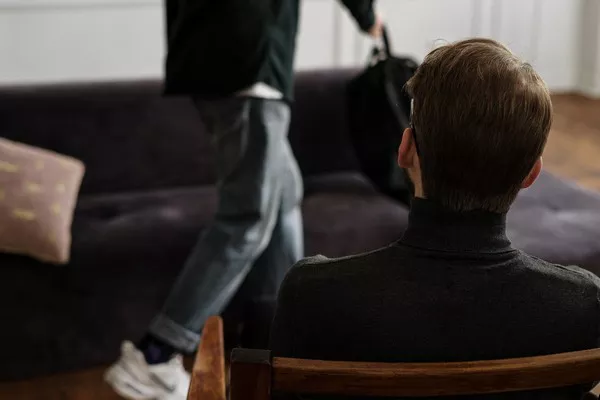Social anxiety is a complex mental health condition that affects individuals’ ability to navigate social situations comfortably. While the exact causes of social anxiety are not fully understood, there are several contributing factors that researchers and mental health professionals have identified. This article delves into the origins of social anxiety, exploring various factors that can influence its development. By gaining a deeper understanding of these root causes, individuals and their support networks can work towards effective management and seek appropriate treatment strategies.
I. Biological Factors
A. Genetic Predisposition:
- Family History: Social anxiety tends to run in families, suggesting a genetic component.
- Neurotransmitter Imbalance: Variations in neurotransmitters, such as serotonin, may contribute to anxiety disorders.
B. Brain Structure and Function:
- Amygdala Hyperactivity: Individuals with social anxiety may have an overactive amygdala, the brain region responsible for processing fear and anxiety.
- Prefrontal Cortex Dysfunction: Reduced activity in the prefrontal cortex, involved in regulating emotions and decision-making, may contribute to social anxiety.
C. Temperament and Personality Traits:
- Behavioral Inhibition: Children with a shy or inhibited temperament may be more susceptible to developing social anxiety.
- Negative Self-Evaluation: Individuals who tend to evaluate themselves critically or have low self-esteem are more prone to social anxiety.
II. Environmental Factors
A. Early Life Experiences:
- Childhood Trauma: Experiences like bullying, abuse, or social rejection can significantly impact the development of social anxiety.
- Parenting Style: Overprotective or critical parenting can contribute to the development of social anxiety in children.
B. Learned Behavior and Conditioning:
- Observational Learning: Modeling the anxious behaviors of others, particularly family members or peers, can influence the development of social anxiety.
- Negative Social Experiences: Repeated negative social interactions or instances of embarrassment can reinforce anxiety in social settings.
C. Cultural and Societal Influences:
- Social Expectations: Societal pressures to meet social norms and expectations can contribute to the fear of judgment and rejection.
- Media Influence: Unrealistic portrayals of social interactions in media can contribute to feelings of inadequacy and anxiety.
III. Cognitive and Psychological Factors
A. Cognitive Biases:
- Negative Self-Evaluation: Distorted thoughts and beliefs about oneself, such as assuming others will judge or reject, can fuel social anxiety.
- Catastrophic Thinking: Expecting the worst-case scenario in social situations can heighten anxiety levels.
B. Perceived Control and Safety Behaviors:
- Overestimating Threat: Individuals with social anxiety may perceive social situations as more threatening than they actually are.
- Safety Behaviors: Engaging in avoidance strategies or relying on safety nets (e.g., always having an exit plan) can perpetuate social anxiety.
C. Maintenance Factors:
- Avoidance and Reinforcement: Avoiding social situations reduces immediate distress but reinforces long-term anxiety.
- Negative Cycle: Experiencing anxiety in social situations leads to further anxiety, creating a self-perpetuating cycle.
IV. Treatment and Coping Strategies
A. Therapy:
- Cognitive-Behavioral Therapy (CBT): CBT helps individuals identify and challenge negative thought patterns, develop coping skills, and gradually face feared social situations.
- Exposure Therapy: This form of therapy involves gradually exposing individuals to social situations to reduce anxiety and desensitize their fear response.
- Social Skills Training: Learning and practicing effective social skills can boost confidence and reduce anxiety in social interactions.
B. Medication:
- Selective Serotonin Reuptake Inhibitors (SSRIs): Antidepressant medications can be prescribed to help manage the symptoms of social anxiety disorder.
- Benzodiazepines: These medications may be used on a short-term basis to alleviate acute anxiety symptoms, but they are not typically a long-term solution.
C. Lifestyle Changes:
- Self-Care Practices: Engaging in regular exercise, getting enough sleep, and practicing relaxation techniques can help reduce anxiety levels.
- Support System: Building a network of supportive friends, family, or joining support groups can provide emotional assistance and understanding.
- Stress Management: Developing healthy stress management techniques, such as meditation, yoga, or journaling, can help individuals cope with social anxiety triggers.
V. Seeking Professional Help
A. Recognizing the Signs:
Understanding the symptoms of social anxiety, such as excessive fear of judgment, avoidance of social situations, and physical symptoms like rapid heartbeat or sweating, can prompt individuals to seek help.
B. Consultation with Mental Health Professionals:
- Psychologists or Therapists: These professionals specialize in treating social anxiety and can provide tailored therapy approaches.
- Psychiatrists: Psychiatrists can evaluate the need for medication and provide ongoing management of mental health conditions.
C. Early Intervention:
- Addressing social anxiety in its early stages can prevent further impairment and promote better outcomes.
- Don’t hesitate to seek help if social anxiety begins to interfere with daily functioning, relationships, or overall well-being.
Conclusion
Social anxiety can have a significant impact on an individual’s life, but understanding its origins and seeking appropriate help can lead to effective management and improved quality of life. Biological factors, environmental experiences, and psychological factors all contribute to the development of social anxiety. Through therapy, medication, lifestyle changes, and a strong support system, individuals can learn to manage their social anxiety symptoms, develop healthier coping strategies, and engage more comfortably in social interactions. It is essential to recognize the signs of social anxiety, seek professional help, and intervene early to prevent further distress. Remember, there is hope, and with the right support and treatment, individuals can overcome the challenges posed by social anxiety and lead fulfilling lives.
Related Topics:





























